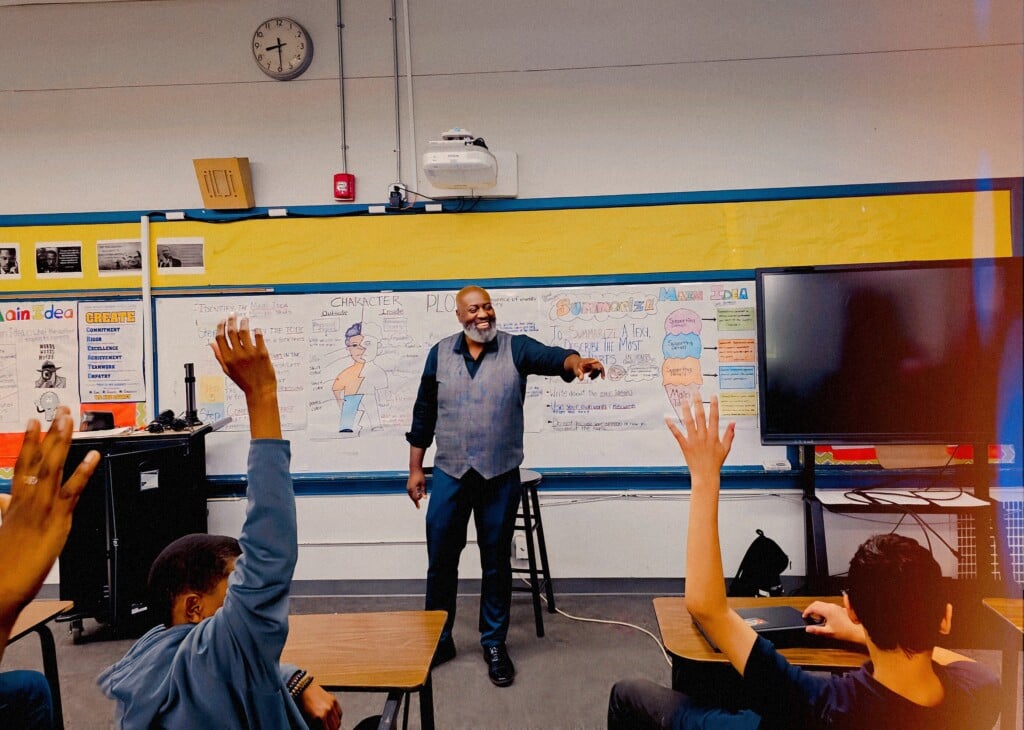Expert Tutors Offering Primary Science Tuition Singapore for All Grades
Expert Tutors Offering Primary Science Tuition Singapore for All Grades
Blog Article
A Comprehensive Overview to the Various Knowing Methods in Key Scientific Research Guideline
The expedition of diverse discovering approaches in primary scientific research instruction provides an opportunity for instructors to improve trainee interaction and comprehension dramatically. By taking a look at hands-on understanding techniques, inquiry-based strategies, and collaborative strategies, we can recognize effective techniques that provide to different learning designs.

Hands-On Discovering Strategies
Hands-on understanding techniques play an essential function in primary scientific research direction, involving pupils in energetic exploration and testing. These techniques permit students to connect directly with products and sensations, fostering a deeper understanding of clinical principles. By utilizing manipulatives, designs, and real-life experiments, educators create an environment where students can observe, hypothesize, and examine their concepts.
Such methods not just improve comprehension yet also grow essential reasoning and analytical abilities. When pupils join tasks like building straightforward equipments, planting seeds, or carrying out chain reactions, they are urged to ask concerns and look for responses via their own monitorings. This experiential method helps to debunk intricate scientific principles, making them a lot more relatable and obtainable.
Additionally, hands-on learning promotes collaboration amongst peers, as pupils typically function in teams to perform experiments or share searchings for. This team effort not just enriches their knowing experience but also develops vital social skills. Ultimately, integrating hands-on methods in primary scientific research guideline promotes a long-lasting love of knowing and inquisitiveness regarding the environment, laying a solid foundation for future scholastic pursuits in scientific research and past.
Inquiry-Based Knowing
Inquiry-based knowing is a training strategy that encourages pupils to ask questions, examine sensations, and construct their own understanding of scientific concepts. This method changes the focus from standard teacher-led guideline to an extra student-centered experience, where students take the campaign in their academic journey. By fostering inquisitiveness, inquiry-based learning advertises much deeper interaction with the product, enabling students to explore topics in a purposeful context.
In technique, this approach typically entails hands-on experiments, observations, and essential thinking tasks that line up carefully with the clinical approach. Students are urged to create hypotheses, layout examinations, and analyze information, which grows important skills such as analytic and analytical thinking. The function of the instructor in this structure is to promote expedition, guiding pupils via the query procedure while urging independent idea and collaboration.
Furthermore, inquiry-based discovering nurtures a sense of ownership over the discovering procedure, motivating students to pursue expertise actively. This technique not only enhances understanding of clinical principles but likewise cultivates a long-lasting love for learning, outfitting trainees with the skills necessary to navigate a progressively complex world.
Collaborative Discovering Approaches
Joint learning strategies encourage pupils to participate in significant interactions with peers, cultivating a common duty for their instructional end results. In key scientific research instruction, these methods motivate learners to collaborate to discover clinical ideas, fix issues, and perform experiments (primary science tuition Singapore). By taking part in team tasks, students can leverage varied viewpoints, permitting richer understanding and retention of scientific knowledge
One key element of collective knowing is the focus on interaction skills. Trainees should verbalize their thoughts, listen proactively to others, and discuss concepts, all of which are important competencies in both real-world and academic contexts. This social communication not just boosts their understanding of scientific concepts but also advertises synergy and dispute resolution abilities.
When pupils see the worth of their contributions within a team, they are much more most likely to take ownership of their discovering journey. Generally, integrating collaborative discovering strategies in main science guideline grows a dynamic understanding setting that prepares trainees for future scholastic and social challenges.
Modern Technology Integration in Scientific Research
The assimilation of innovation in primary scientific research direction boosts finding out experiences by offering innovative devices and resources that support numerous mentor methodologies, including collaborative understanding - primary science tuition Singapore. Making use of electronic platforms, simulations, and interactive applications allows trainees to involve deeply with clinical ideas, promoting a more hands-on method to learning
Virtual labs, as an example, make it possible for students to conduct experiments securely and effectively, advertising inquiry-based understanding. These tools can imitate real-world clinical situations, allowing students to envision complicated processes that would certainly be tough useful source to replicate in a traditional classroom setting. Moreover, innovation promotes communication and cooperation amongst pupils, as they can share searchings for and collaborate on tasks via on the internet systems.
Furthermore, multimedia discussions and instructional video clips can enhance lessons by satisfying diverse learning designs, making abstract concepts a lot more obtainable. Information analysis tools likewise empower pupils to collect and translate clinical data, enhancing crucial assuming skills. In general, the critical consolidation of modern technology in primary scientific research direction not only boosts involvement yet additionally prepares students for a technically innovative society, outfitting them with essential skills for future clinical ventures.
Set Apart Guideline Methods
Separated direction approaches are crucial for attending to the diverse needs of students in key scientific research education. These methods make it possible for teachers to customize their mentor approaches to accommodate differing capabilities, interests, and learning designs within the class. By using set apart instruction, instructors can produce an inclusive environment that fosters involvement and enhances understanding of clinical ideas.
One efficient method is to utilize adaptable organizing, which enables trainees to work together with peers at similar ability levels or with differing point of views. This approach encourages peer learning and promotes vital reasoning. Additionally, providing selections in assignments can equip pupils, allowing them to choose tasks that resonate with their rate of interests while still fulfilling curricular objectives.
Moreover, including tiered tasks is an additional important strategy. Deliberately jobs with differing levels of intricacy, instructors can guarantee that all pupils are properly tested, no matter of their efficiency. Using developmental analyses to assess comprehending additional enables educators to change their instructional methods dynamically, making certain that each student gets the assistance they straight from the source need.
Eventually, executing distinguished direction methods in key science education and learning not just boosts student understanding end results however likewise grows a passion for science, preparing trainees for future academic pursuits.

Verdict
In recap, effective key science instruction requires a diverse approach that encompasses hands-on learning, inquiry-based techniques, and joint strategies. The combination of technology and differentiated instruction even more accommodates varied knowing styles, cultivating a setting conducive to expedition and crucial reasoning. By applying these methods, instructors can enhance student interaction and understanding, inevitably supporting a lifelong interest for scientific research and navigate to these guys inquiry. Such extensive approaches are essential for creating informed and curious future researchers.
The exploration of diverse learning approaches in main scientific research guideline presents an opportunity for teachers to enhance student interaction and comprehension significantly.Hands-on knowing techniques play a crucial role in main science direction, involving students in energetic exploration and testing.Inquiry-based knowing is an educational method that motivates trainees to ask concerns, examine sensations, and create their very own understanding of clinical principles.Collaborative knowing approaches encourage pupils to involve in meaningful communications with peers, cultivating a common obligation for their academic end results. Overall, incorporating joint understanding strategies in primary science instruction grows a vibrant understanding environment that prepares trainees for future scholastic and social obstacles.
Report this page